SOLOMON BURKE / “Solomon Burke Mixtape”
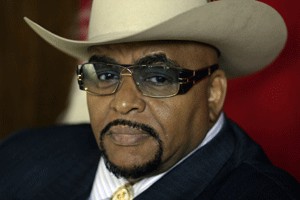 Can a brother get philosophical for a minute? After all, we are talking about a former minister whose birth name is “Solomon.”
But, on the other hand, he is also a professional mortician and touring musician. Born in Philadelphia, March 21, 1940, Solomon Burke is sometimes billed as “The King.” The paradox is he’s never had a number one record yet is near universally respected by peers and critics—of course, most of his peers are long ago either retired professionally or retired permanently (as in “deceased”), as for critics, most of them don’t buy records or concert tickets. Although Solomon may not be a big record seller, he is a touring favorite.
Can a brother get philosophical for a minute? After all, we are talking about a former minister whose birth name is “Solomon.”
But, on the other hand, he is also a professional mortician and touring musician. Born in Philadelphia, March 21, 1940, Solomon Burke is sometimes billed as “The King.” The paradox is he’s never had a number one record yet is near universally respected by peers and critics—of course, most of his peers are long ago either retired professionally or retired permanently (as in “deceased”), as for critics, most of them don’t buy records or concert tickets. Although Solomon may not be a big record seller, he is a touring favorite.
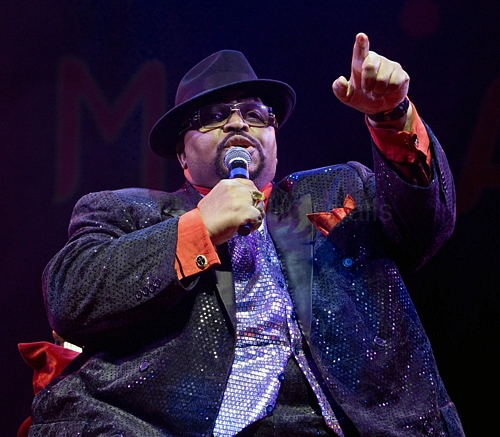 Catching him live was always the best way to appreciate Solomon Burke. King Burke had a bearing that was charismatic. Physically, as a young man, there also seemed to me to be a malevolent edge to his persona. It wasn’t anything he said, rather check the way he looks—he has the even, unblinking gaze of a predator…(and right here I’m going to try to resist linking predator and preacher).
But part of the Solomon Burke mystique had to do not simply with his physical presence but rather with his storied carnality. “How storied?” those of you who know nothing or next to nothing about the man might ask. Well, let’s see 14 daughters and 7 sons, plus tons of grandchildren. How many tons, Kalamu? Try 90.
But wait, it gets deeper. After the golden age of the sixties/seventies, Solomon kept plugging away. Kept touring. Sporadically recording. Doing movie parts—yes, he was Daddy Mention (or something like that) in the famous New Orleans movie Big Easy.
I said I wanted to get philosophical and I did, but now I got to break down the philosophy behind all of the above.
Christianity has this thing about the physical. Their religious views border on a total hatred of the physical body. I don’t have to go into “original sin” here do I? Nor should I have to point out that once Adam and Eve acquired some knowledge by eating the apple, when God came calling they tried to hide because they suddenly realized that they were naked. Now, mind you, all prior to the apple tasting they had been conversating with the deity while butt naked and there was no problem. Which, all of course, begs the question: what’s wrong with nakedness?
Catching him live was always the best way to appreciate Solomon Burke. King Burke had a bearing that was charismatic. Physically, as a young man, there also seemed to me to be a malevolent edge to his persona. It wasn’t anything he said, rather check the way he looks—he has the even, unblinking gaze of a predator…(and right here I’m going to try to resist linking predator and preacher).
But part of the Solomon Burke mystique had to do not simply with his physical presence but rather with his storied carnality. “How storied?” those of you who know nothing or next to nothing about the man might ask. Well, let’s see 14 daughters and 7 sons, plus tons of grandchildren. How many tons, Kalamu? Try 90.
But wait, it gets deeper. After the golden age of the sixties/seventies, Solomon kept plugging away. Kept touring. Sporadically recording. Doing movie parts—yes, he was Daddy Mention (or something like that) in the famous New Orleans movie Big Easy.
I said I wanted to get philosophical and I did, but now I got to break down the philosophy behind all of the above.
Christianity has this thing about the physical. Their religious views border on a total hatred of the physical body. I don’t have to go into “original sin” here do I? Nor should I have to point out that once Adam and Eve acquired some knowledge by eating the apple, when God came calling they tried to hide because they suddenly realized that they were naked. Now, mind you, all prior to the apple tasting they had been conversating with the deity while butt naked and there was no problem. Which, all of course, begs the question: what’s wrong with nakedness?
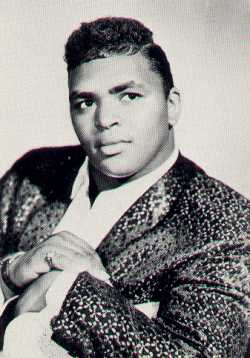
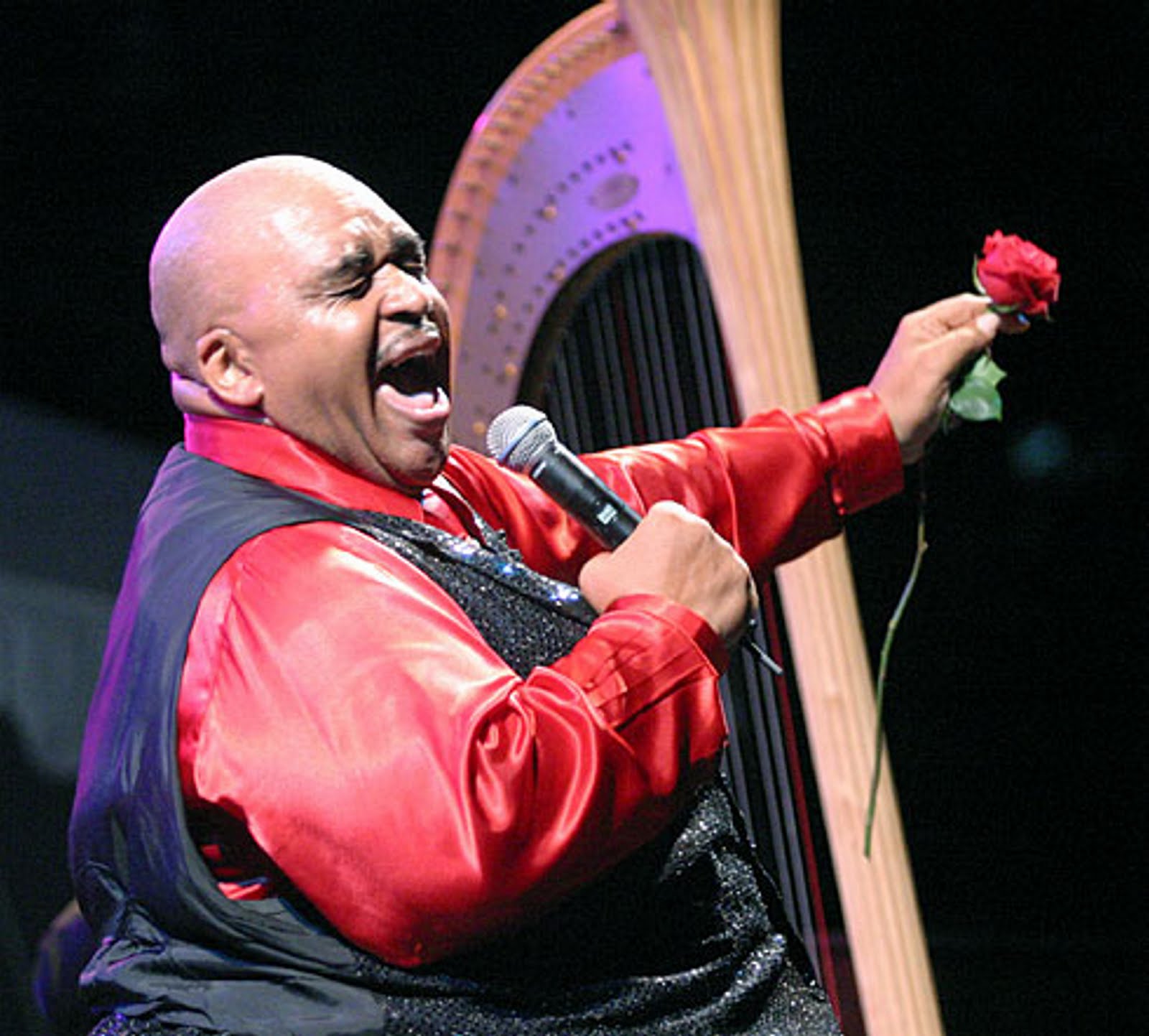 Funny thing is, his pro-women views are not so noticeable in his studio recordings, which tend to plow the ground of romantic pursuit and romantic disappointment. But in his live performances the message comes stomping through loud and strong. The Mixtape exemplifies this difference between studio and live recordings. The Mixtape opens with four studio tracks and everything else is from two live albums.
The first two studio tracks, “Got To Get You Off My Mind” and “Cry To Me,” are from Solomon’s early sixties years and the next two, “Oh What A Feeling” and “Dreams” are from his new 2010 album, Nothing’s Impossible.
The early days of R&B included a healthy helping of rural music, which meant blues and country & western, which initially were the two essential musics of poor people in America. Moreover, C&W was indelibly influenced by prevailing black music forms. In any case, notice that stylistically, those early songs literally rock (really “sway” back and forth), more than they emphasize a heavy backbeat, which backbeat is characteristic of classic R&B.
Funny thing is, his pro-women views are not so noticeable in his studio recordings, which tend to plow the ground of romantic pursuit and romantic disappointment. But in his live performances the message comes stomping through loud and strong. The Mixtape exemplifies this difference between studio and live recordings. The Mixtape opens with four studio tracks and everything else is from two live albums.
The first two studio tracks, “Got To Get You Off My Mind” and “Cry To Me,” are from Solomon’s early sixties years and the next two, “Oh What A Feeling” and “Dreams” are from his new 2010 album, Nothing’s Impossible.
The early days of R&B included a healthy helping of rural music, which meant blues and country & western, which initially were the two essential musics of poor people in America. Moreover, C&W was indelibly influenced by prevailing black music forms. In any case, notice that stylistically, those early songs literally rock (really “sway” back and forth), more than they emphasize a heavy backbeat, which backbeat is characteristic of classic R&B.
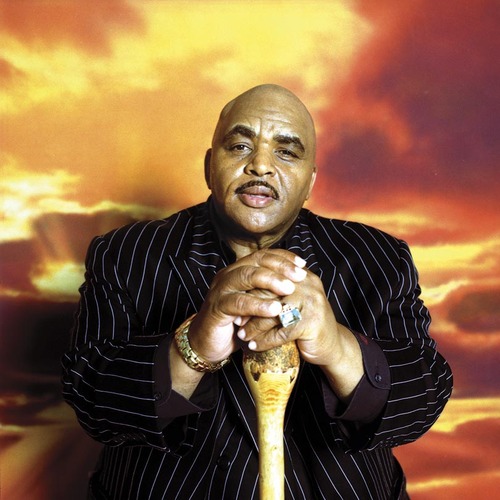 The two new songs are quintessential R&B: a popping backbeat, hard horns and soaring strings supporting energetic vocals. A lot of neo-soul artists claim to be paying homage to this sound, but Solomon sings it like as if he recorded in a time machine set on 1971 or ’72. It’s beautiful and were it not for the live recordings, I would be doing a back and forth between early and recent recordings.
But it’s the live stuff that delivers us into R&B heaven. You’ve probably heard of the Saturday night/Sunday morning dichotomy. I believe that is a false separation, or more accurately, I should say the dichotomy is an artificial separation. On both days the essence of the aesthetic is the transcendence of the here and now by entering into a trance state.
The trance state not only elevates above the earthly plane, “catching the spirit” also completely erases the separation between performer and audience. What is often called “call and response” is but a specific example of the audience becoming performer.
Additionally, Trance requires movement, hence the Baptist admonition, if you can’t sing, at least pat your foot and keep time! But, as is evident, on these live recordings, the deeper truth is that everybody can sing—if you can talk, you can sing when the spirit moves you.
Furthermore, it is no accident that Solomon reveres and draws upon the legacy of Sam Cooke, including rocking Sam Cooke songs. Sam Cooke remains the most inspired example of a sacred artist who transitioned to secular success.
Also notice that Burke reaches back to the popular black music of the fifties jump blues period. Jump blues was the initial merger of blues and jazz in popular music, ala Louis Jordan, Big Maybelle, and especially Ray Charles, among a number of others.
On songs such as “Candy” and “I Want A Little Girl,” you also hear Burke demonstrate his technical skill as a vocalist. He accurately negotiates the harmonic changes and hits all the notes in tune.
The two new songs are quintessential R&B: a popping backbeat, hard horns and soaring strings supporting energetic vocals. A lot of neo-soul artists claim to be paying homage to this sound, but Solomon sings it like as if he recorded in a time machine set on 1971 or ’72. It’s beautiful and were it not for the live recordings, I would be doing a back and forth between early and recent recordings.
But it’s the live stuff that delivers us into R&B heaven. You’ve probably heard of the Saturday night/Sunday morning dichotomy. I believe that is a false separation, or more accurately, I should say the dichotomy is an artificial separation. On both days the essence of the aesthetic is the transcendence of the here and now by entering into a trance state.
The trance state not only elevates above the earthly plane, “catching the spirit” also completely erases the separation between performer and audience. What is often called “call and response” is but a specific example of the audience becoming performer.
Additionally, Trance requires movement, hence the Baptist admonition, if you can’t sing, at least pat your foot and keep time! But, as is evident, on these live recordings, the deeper truth is that everybody can sing—if you can talk, you can sing when the spirit moves you.
Furthermore, it is no accident that Solomon reveres and draws upon the legacy of Sam Cooke, including rocking Sam Cooke songs. Sam Cooke remains the most inspired example of a sacred artist who transitioned to secular success.
Also notice that Burke reaches back to the popular black music of the fifties jump blues period. Jump blues was the initial merger of blues and jazz in popular music, ala Louis Jordan, Big Maybelle, and especially Ray Charles, among a number of others.
On songs such as “Candy” and “I Want A Little Girl,” you also hear Burke demonstrate his technical skill as a vocalist. He accurately negotiates the harmonic changes and hits all the notes in tune.
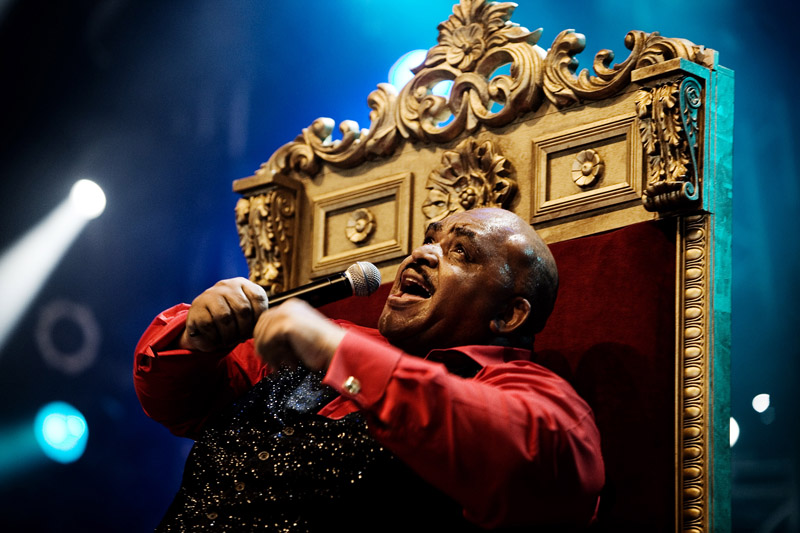 Beyond the technicalities of music making, Burke has the extra ability to actually preach to the assembled congregation and get them involved to the point of spontaneously responding out loud.
Philosophically, this music is a form of communal expression. And King Solomon Burke is an avatar of the soul branch of popular black music. Commercially, he is on the second string. But when it’s time to get down, he’s not only a starter, Solomon Burke is a star.
—Kalamu ya Salaam
Solomon Burke Mixtape Playlist
Beyond the technicalities of music making, Burke has the extra ability to actually preach to the assembled congregation and get them involved to the point of spontaneously responding out loud.
Philosophically, this music is a form of communal expression. And King Solomon Burke is an avatar of the soul branch of popular black music. Commercially, he is on the second string. But when it’s time to get down, he’s not only a starter, Solomon Burke is a star.
—Kalamu ya Salaam
Solomon Burke Mixtape Playlist
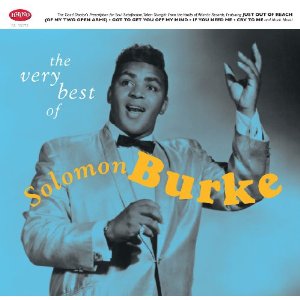 The Very Best Of
01 “Got To Get You Off My Mind”
02 “Cry To Me”
The Very Best Of
01 “Got To Get You Off My Mind”
02 “Cry To Me”
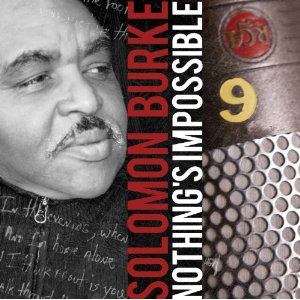 Nothing's Impossible
03 “Oh What A Feeling”
04 “Dreams”
Nothing's Impossible
03 “Oh What A Feeling”
04 “Dreams”
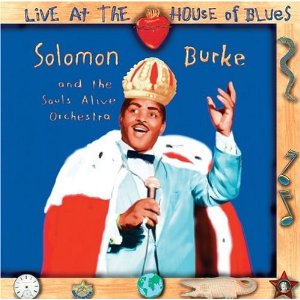 Live At The House Of Blues
05 “Got To Get You Off My Mind”
06 “Candy / Candy Rap”
07 “I Want A Little Girl”
Live At The House Of Blues
05 “Got To Get You Off My Mind”
06 “Candy / Candy Rap”
07 “I Want A Little Girl”
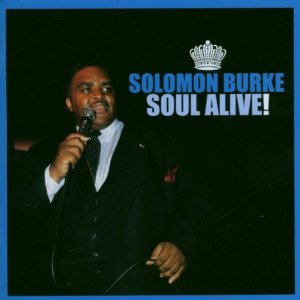 Soul Alive
08 “Medley - If You Need Me, Tonight's The Night, You're Good For Me, I Almost Lost My Mind, What Am I Living For, Just Out Of Reach”
09 “Monologue - Hold What You've Got - He'll Have To Go”
10 “Introduction To Encore - Gotta Get You Off My Mind”
11 “Gotta Get You Off My Mind”
12 “Having A Party – Amen”
Soul Alive
08 “Medley - If You Need Me, Tonight's The Night, You're Good For Me, I Almost Lost My Mind, What Am I Living For, Just Out Of Reach”
09 “Monologue - Hold What You've Got - He'll Have To Go”
10 “Introduction To Encore - Gotta Get You Off My Mind”
11 “Gotta Get You Off My Mind”
12 “Having A Party – Amen”
This entry was posted on Monday, August 23rd, 2010 at 2:13 am and is filed under Classic. You can follow any responses to this entry through the RSS 2.0 feed. You can leave a response, or trackback from your own site.
3 Responses to “SOLOMON BURKE / “Solomon Burke Mixtape””
May 19th, 2015 at 3:30 am
For most recent information you have to go to see the web and
on world-wide-web I found this web site as a best site
for latest updates.
May 19th, 2015 at 10:15 am
I must thank you for the efforts you’ve put in writing
this site. I really hope to check out the same high-grade blog posts from you in the
future as well. In truth, your creative writing abilities has inspired me to get my own, personal
site now 😉
Leave a Reply
| top |